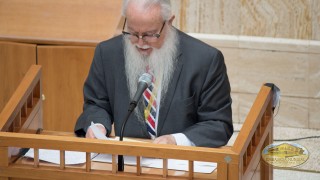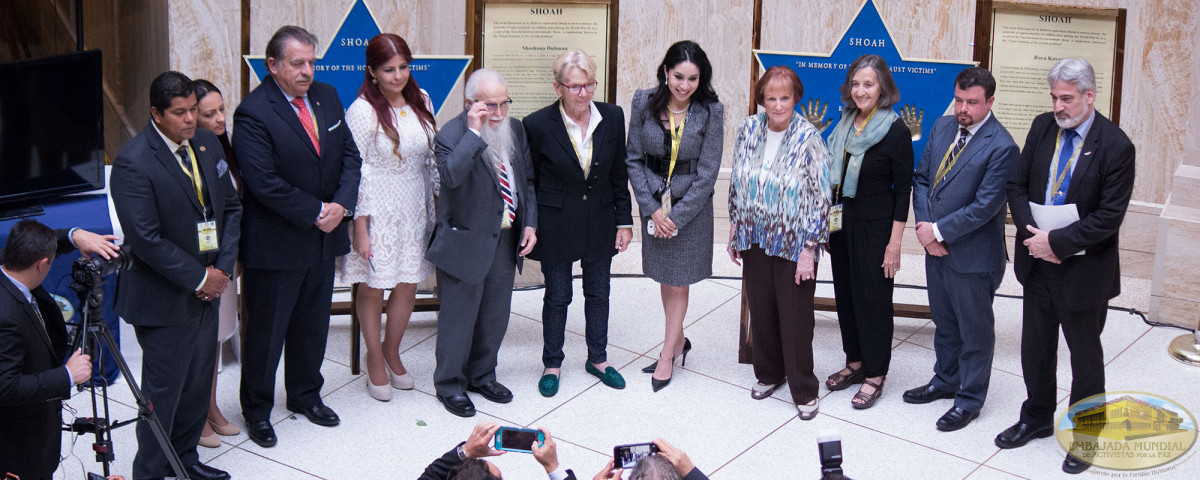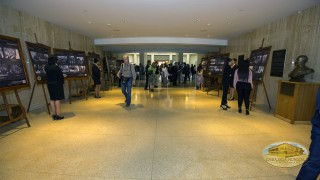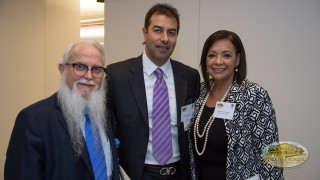New Mexico pays homage to Holocaust survivors as part of the Project “Traces to Remember.”
The Government of the State of New Mexico proclaims May 5th, as the Traces to Remember Day.
The Global Embassy of Activists for Peace (GEAP) in collaboration with the State of New Mexico, USA, the Consulate General of Israel and the New Mexico Human Rights Project led the Commemoration for the Holocaust Victims on May 5th, 2016 in the Capitol of the city of Santa Fe, as part of the Project “Traces to Remember”, which aims to keep alive the testimony of the Holocaust survivors and transmit unto present and future generations the universal lessons of that unfortunate event.
Holocaust Remembrance Day, known as Yom Hashoah in Hebrew, is the day Israel remembers more than six million Jews that were systematically murdered during the Holocaust, along with gypsies, Jehovah’s Witnesses, leftists, homosexuals, political opponents, prisoners of war, mentally handicapped and the rest of the population not considered pure by the Nazi regime.
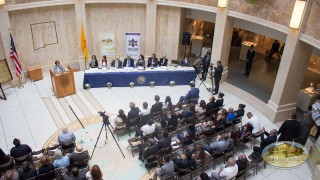
The Roundhouse (New Mexico State Capitol) was the setting for a meeting of prominent panelists, such as: Mr. Eitan Levon, Israeli consul for the Southwest of United States; Efren Nicolas Leiva A., General Consul of Mexico in Albuquerque; Mrs. Regina Turner, founder and Executive President of the Human Rights Projects of New Mexico; Mr. Zachary Benjamin, Executive President of the New Mexico Jewish Federation; Mrs. Idalia Lechuga-Tena, representative of District 21; Miss Shoshana Dubman and Mrs. Raya Kovensky, Holocaust survivors; and Mrs. Gabriela Lara, Director General of the GEAP.
In addition to having a large participation of the Jewish community of the State of New Mexico, around ten Holocaust survivors, Activists for Peace from different states of the American union, citizens of Santa Fe, Albuquerque and other cities of New Mexico were present.
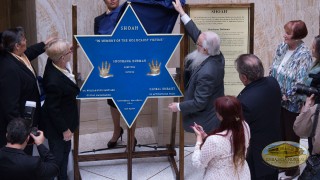
During the ceremony, the unveiling of two commemorative plaques with the shape of the Star of David was made, which has the handprints of the survivors Shoshana Dubman and Raya Kovensky, whom shared with the audience their experience during the Holocaust.
Tribute was also paid to the other survivors that were present, with the delivery of a white rose, symbol of innocence and purity against evil. Shoshana Dubman narrating her survival experience, said:
“I represent the children that were born towards the end of the war or at the end of the war. We do not have birth certificates, I do not have papers, I do not have a baptism certificate because when my papers were being made here in the United States of America, they asked me: ‘Do you have a baptism certificate?’ I said: ‘I am Jewish. I do not have a baptism certificate, I do not have a birth certificate.’ And children like us, we could have been born in a ditch, we could have been born in a prison, we could have been born in some place at a camp, or maybe our mothers were raped while trying to escape for freedom and maybe they did not even know they were carrying a child.”
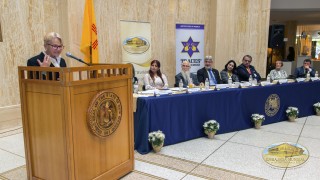
In addition, Shoshana urged those present to monitor everything in their environment to avoid the repetition of events like these, for which she stated:
“Please be aware of the person next to you. Please be aware of your neighbor, of the disturbances in your cities, in schools. Be aware and do not remain silent, do not look away... do not look away. Every holocaust, genocide, has its survival story. The difference of this holocaust is that it is still at our reach, it is still within reach to hear the stories to learn the lessons.”
On his behalf, the General Consul of Mexico in Albuquerque, in his speech quoted the poem “First they came for the Communists…” by Martín Niemöller, which speaks about the consequences of not opposing tyrannies, and when he was finally betrayed, there was no one left to defend him. The Consul said of the teachings he learned from this tragic event:
“We must find the victory of tolerance over racism, of love over hatred, of good over evil; create generations of educators to teach how to study the Holocaust and how to learn of that time of solar eclipse.”
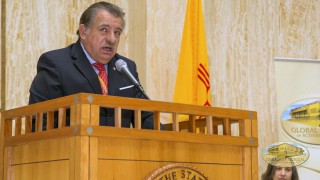
The intervention of Mr. Eitan Levon, General Consul of Israel of southeastern United States, revolved around what the State of Israel means to the Jews: a “refuge,” and everything it provides for them today, including the collective self-defense capacity and the “voice” of the Jewish people. He said of the Holocaust and the work carried out by the GEAP:
“The Holocaust is a warning to the entire human race, which should never be relegated to simply be a history lesson of the past, it is a lesson for the future. Organizations such as the Global Embassy of Activists for Peace and projects such as “Traces to Remember,” with their noble actions, ensure that the Holocaust is not allowed to vanish into oblivion.”
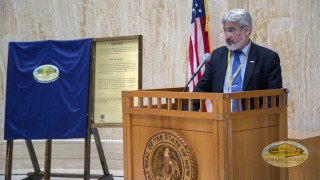
Then, Mrs. Susana Martinez, governor of the State of New Mexico, granted the proclamation to the Global Embassy of Activists for Peace and its Global Ambassador, Dr. William Soto Santiago, establishing May 5th, as “Traces to Remember” Day, from the date and in the subsequent years in the State. Representative Idalia Lechuga-Tena delivered this proclamation, which stated:
“We are here to defend Human Rights. Many of the laws we are going to propose are to defend our human rights, and I know we have many Activists for human rights here; but I want to congratulate you for the arduous work you do every day as Activists.”
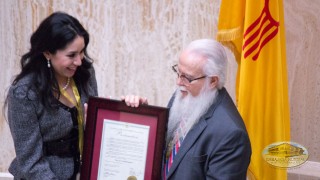
Dr. William Soto Santiago, in his speech stressed that it is important to count on the commitment of governmental, civil and diplomatic organizations to support the promotion of actions focused on the teaching and defense of human rights, with emphasis on the personal commitment of sharing the history of the survivors as a tool for prevention:
“The only thing that guarantees that people become aware of the value of life is education; a fundamental tool that will allow us to work more effectively in any part of the world and with people of different nationalities, cultures, ideologies, languages, ages, religions and beliefs.
Today, more than ever, we have the obligation to remember the past, learn from its lessons and apply them to the present, in order to secure the future of our peoples based on justice, truth, harmony and equity. Remembering our history and respecting human dignity will allow us to build a culture of peace.”
